Benefits of Burning Firewood 2024
- September 18, 2023
- 0 comment
There’s a reason our ancestors gravitated toward the warm embrace of a fire. Dancing flames and the crackling sound of wood evoke feelings of comfort, nostalgia, and a primal connection to nature. But beyond the aesthetics, burning firewood offers several tangible benefits. Let’s delve deep into the multifaceted advantages of using firewood as a source of heat and ambiance.
A Renewable Source of Energy
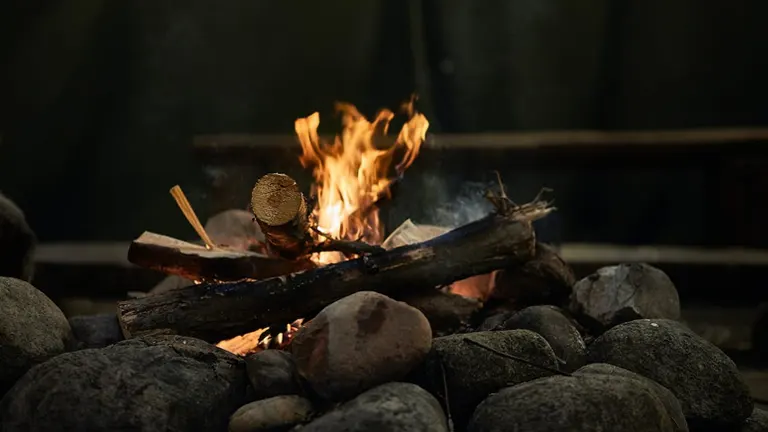
The world today is desperately seeking sustainable energy sources, and firewood beautifully fits that criterion. Trees, nature’s lungs, play a dual role: they purify the air by absorbing carbon dioxide and, when responsibly harvested, offer a sustainable source of energy. When burned, the carbon dioxide they release is almost equal to what they’ve absorbed throughout their lifetime, resulting in a nearly balanced carbon footprint.
Economical Heating

With the escalating costs of utilities, an economical solution like firewood is a godsend for many. Access to local timber means not only a reduced expense on heating but also an opportunity to engage in the primal activities of cutting, splitting, and seasoning wood. These actions not only save money but also create a sense of achievement and connection to the earth.
Energy Independence

Our world is increasingly interconnected, but this often means a dependency on vast, often unreliable grids. Firewood offers homeowners a taste of self-sufficiency. By using wood as a primary or supplementary source of heating, we’re not left helpless during power outages or when facing skyrocketing energy costs.
A Cozy Ambiance

Electric heaters might offer warmth, but they lack the intimate ambiance a wood fire provides. The radiant glow from burning logs creates an atmosphere of comfort and intimacy. It’s perfect for family gatherings on a chilly night or setting a romantic mood during a quiet dinner for two.
Therapeutic Chores
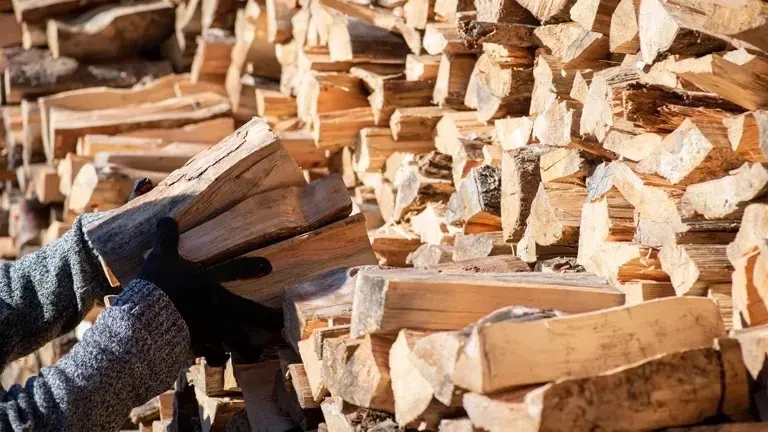
Beyond the tangible benefits, managing firewood can be an exercise in mindfulness. The rhythmic chopping of wood, the stacking of logs, and the very act of nurturing a fire can be therapeutic. Engaging in these activities offers a unique blend of physical exertion and mental relaxation, drawing us closer to nature and giving us a profound sense of achievement.
Cooking with Flavor
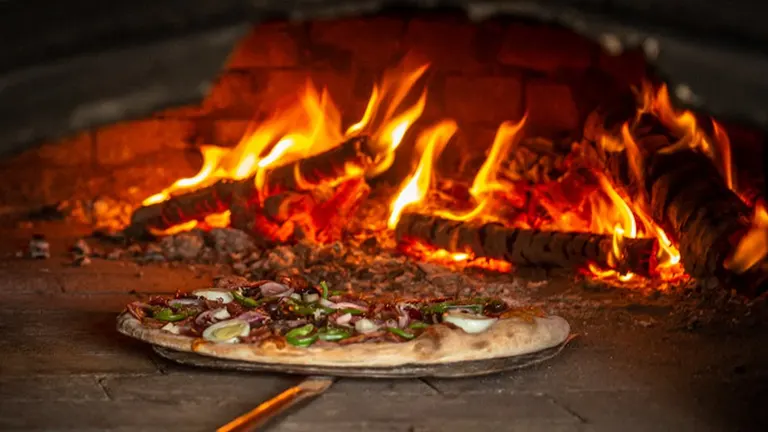
Firewood isn’t just about heating; it’s a gourmet’s delight. There’s an unparalleled flavor and texture in food cooked over wood flames. Be it smoked meats, grilled vegetables, or bread from a wood-fired oven, the culinary depth offered by wood is incomparable.
Supports Local Economies
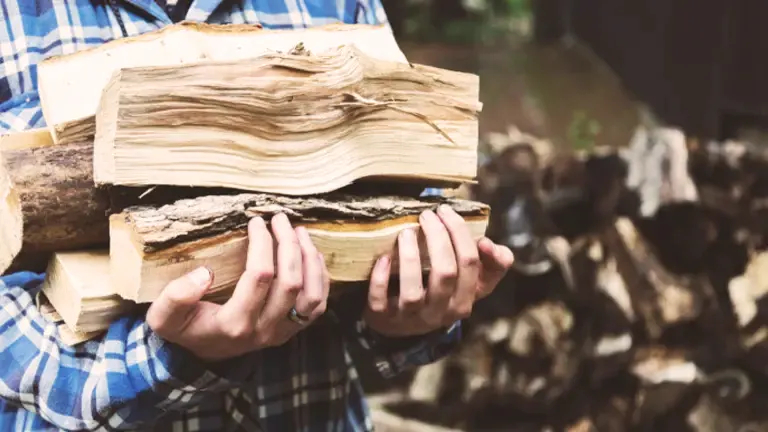
Choosing firewood is also a choice to support local communities. Purchasing wood locally means the money circulates within the community, promoting local employment and fostering stronger community bonds. It’s an economic benefit that also fortifies communal ties.
Reduced Carbon Footprint

In an age of heightened environmental awareness, every choice matters. Transporting fuels over long distances is a significant contributor to carbon emissions. By choosing locally-sourced firewood, the environmental costs associated with transport diminish greatly, making it a green choice in every sense.
A Fallback during Emergencies
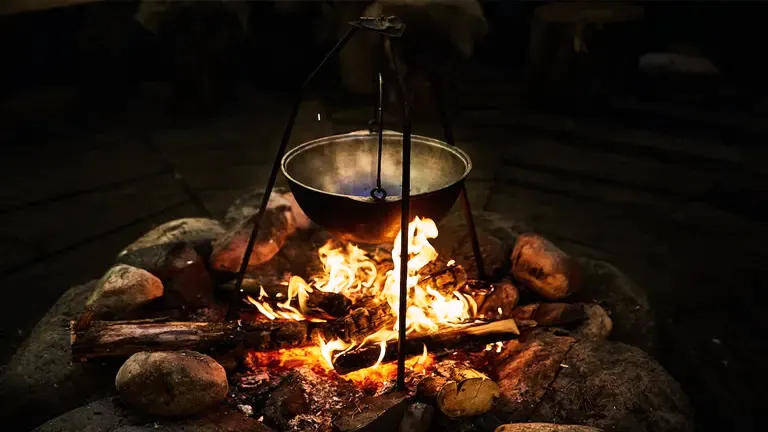
In today’s world of convenience, it’s easy to forget how fragile our systems can be. In emergencies, when these systems falter, a simple wood stove can make the difference between despair and hope. Whether it’s for warmth, cooking, or boiling water, firewood becomes an essential lifeline.
Tradition and Learning
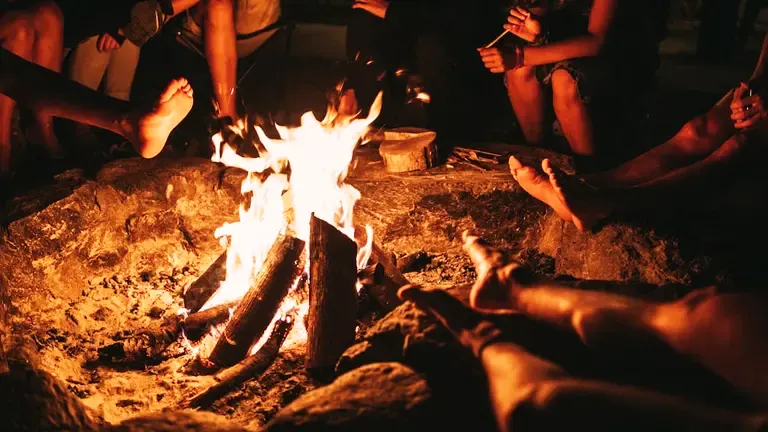
Every log carries a story, a history that spans generations. Burning wood offers a beautiful bridge between past and present, with lessons in fire safety, wood varieties, and even storytelling. It’s an activity that binds generations and keeps ancient wisdom alive.
In Conclusion
Burning firewood is a journey, one that connects us to our ancestors, to nature, and to the world around us. It’s more than just a source of heat; it’s a tradition, a teacher, and a comforter. While it’s crucial to source and burn responsibly, the myriad benefits of firewood make it an irreplaceable part of our lives.
Take a moment to explore our Forestry Services today and discover how we can make a positive impact on your life
FAQs
- Why do some logs “sing” or make a hissing sound when burning?
Logs can occasionally make a hissing or sizzling noise when they burn. This is due to the water inside the wood turning into steam and trying to escape. If the wood isn’t properly seasoned, the water content is high, leading to these sounds and inefficient burning. - Can firewood have a specific aroma when burned?
Absolutely! Different types of wood produce different fragrances when burned. For instance, cherry wood emits a sweet scent, while pine can give off a refreshing, forest-like aroma. - Is there a way to change the flame’s color in a wood-burning fire?
Yes, some elements, when introduced to a flame, can change its color. For a fun experiment, try sprinkling a little salt (sodium chloride) for a yellow flame or borax for a green flame. However, be cautious and research before introducing any foreign elements into your fire. - Why does hardwood produce longer-lasting fires than softwood?
Hardwoods are denser than softwoods. This means they have more “fuel” per cubic inch and, as a result, burn longer and produce more sustained heat. - Are there types of firewood to avoid for indoor burning?
Some woods, like poison ivy, poison oak, or poison sumac, can release irritants when burned, potentially causing respiratory distress. Additionally, some softwoods, when burned indoors, can lead to excessive creosote buildup in chimneys. - Why do some logs pop and crackle when they burn?
The popping and crackling noises often come from pockets of sap or moisture inside the wood. When these pockets heat up, they can cause the wood to pop or crackle. Additionally, the release of gases trapped in the wood can also cause these sounds. - Can burning specific types of wood affect the taste of food in a wood-fired oven?
Indeed, different woods can impart unique flavors to food. For example, applewood can give a mild, sweet flavor, making it great for pork and poultry, while mesquite has a strong flavor suitable for red meats. - Is it true that ash from wood can be beneficial for gardens?
Yes, wood ash can be a great garden supplement, providing essential nutrients like potassium. However, it’s essential to ensure that the wood burned hasn’t been treated with chemicals, and the ash should be used sparingly and tested with the soil’s pH levels. - How do the phases of the moon influence woodcutting for firewood?
An old belief, especially in some European cultures, posits that wood cut during the waning moon burns better and is less susceptible to pests. The rationale is that the sap descends during this phase, making the wood drier and better for burning. - Is there a best time of year to gather firewood?
Traditionally, late winter to early spring is considered optimal. Trees are dormant, the sap has descended, and the wood will have more time to season (dry out) before the next burning season.
We’d love to hear from you! Share your personal experiences and insights about the Benefits of Burning Firewood in 2024 in the comments section below. Your perspectives could enlighten and guide others in embracing this age-old tradition!

David Murray
Forestry AuthorI'm David Murry, a forestry equipment specialist with a focus on chainsaw operation. With over 13 years of experience, I've honed my skills in operating and maintaining a wide range of machinery, from chainsaws to log splitters. My passion for the outdoors and commitment to sustainable forestry drive my work, which emphasizes safety, efficiency, and staying updated with industry advancements. Additionally, I'm dedicated to sharing my expertise and promoting environmental awareness within the forestry community.



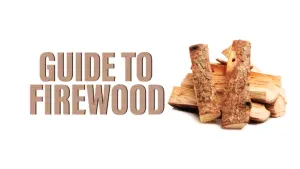





Leave your comment